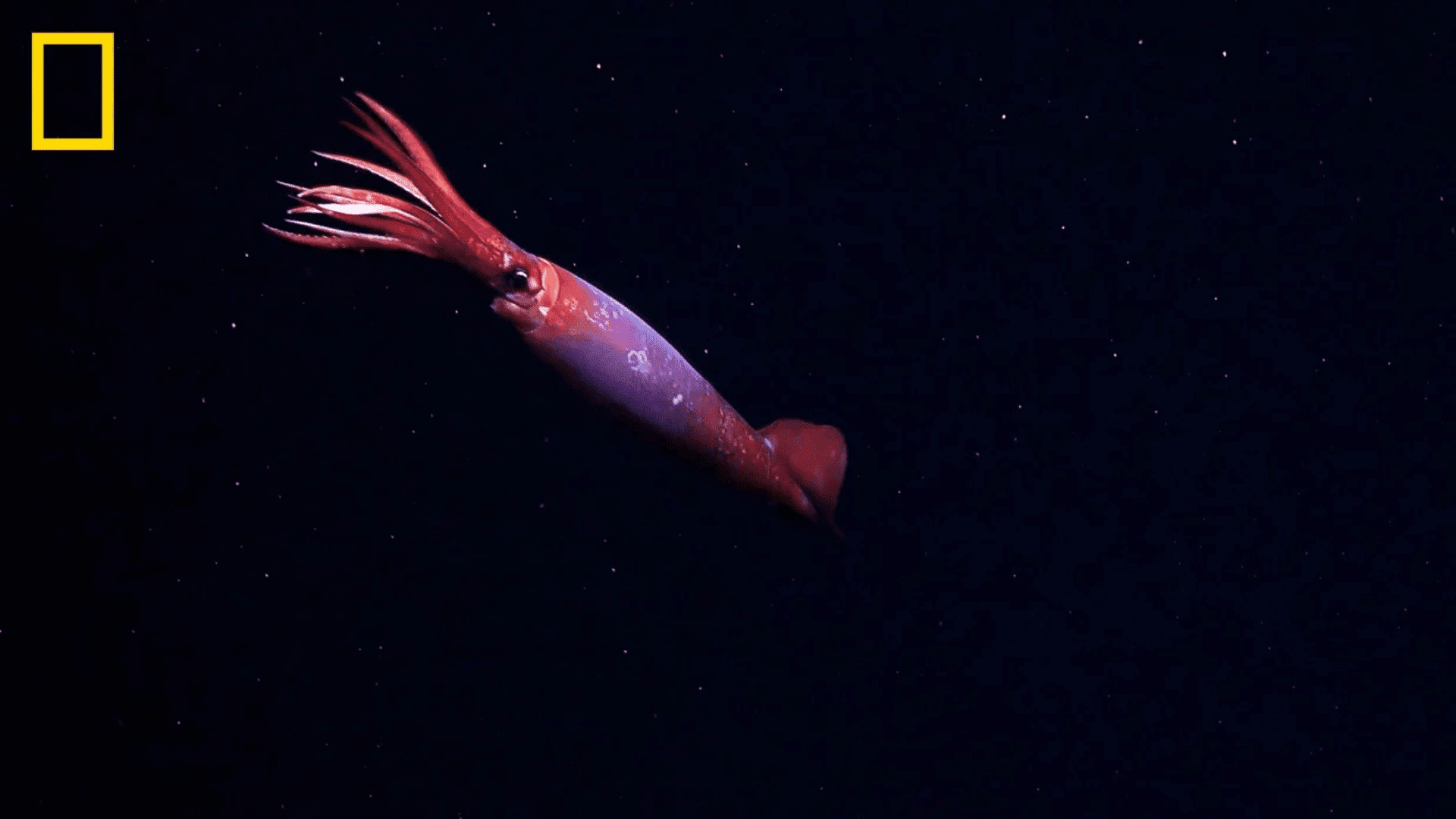The crew of the R/V Falkor (Too), a Schmidt Ocean Institute research vessel, captured footage of a live Antarctic gonate squid for the first time.
The dive that resulted in this exciting find was part of the National Geographic and Rolex Perpetual Planet Expedition. This initiative was made to document climate change in the rainforests, mountains, and oceans.
First-Ever Live Sighting
The research team had originally planned to deploy SuBastian, its remotely operated vehicle responsible for other ocean discoveries, at a site called the Powell Basin. However, the movement of ice blocks resulted in the mission being redirected to the area’s outer edges.
When SuBastian reached 7,000 feet, the team spotted a shadow on the live feed. The shadow ended up belonging to an Antarctic gonate squid, a rare species of cephalopod that’s never been captured on film alive before.
Advertisement
“It was a beautiful squid,” Andrew Thurber, a deep-sea researcher at the University of California, Santa Barbara, who was aboard the vessel, said to the New York Times. “You see beauty all the time in the deep ocean, and this was just one classic example of it.”
The video captured the three-foot-long creature and its unique red coloration and white spots. The squid also appears to have scratches on its arms and sucker marks on its mantle, potentially indicating it was recently attacked by another sea creature.


Dr. Thurber and his colleagues verified the species by sending the images they captured to taxonomists around the world. Kat Bolstad, a cephalopod biologist at the Auckland University of Technology in New Zealand, helped identify the animal by the single hook in each of its tentacles.
Researchers believe that, since the squid is alive in the footage, it could prove useful for learning more about how they live and potentially identifying specimens in collections around the world.
“We know so little about that community that there could be all sorts of things going on that we can only wonder about,” said Bruce Robison, a deep-sea ecologist at the Monterey Bay Aquarium Research Institute, who was not involved in the expedition.



